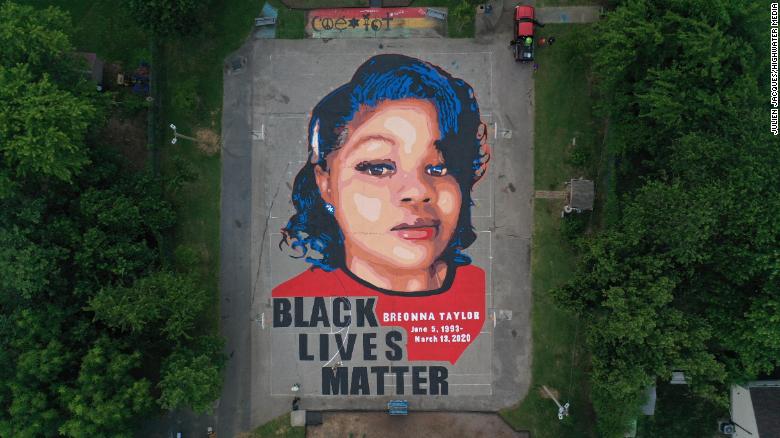[ad_1]
Previously unheard audio of interviews in the investigation of the shooting death of Breonna Taylor have revealed new details about the incident.
According to NBC News, the investigator interviewing Sgt. Jonathan Mattingly, who led the raid in March, insisted that he, and six officers, knocked on the front door of the apartment Taylor and her boyfriend, Kenneth Walker, lived in and announced themselves as police.
Walker told a different story.
In his interview with police, Walker said there was banging on the door but the couple never heard anyone say “police.” Walker added after he and Taylor asked who it was and got no response he reached for his licensed firearm.
The timing of the interviews has also raised questions about the approach the police took to interviewing crucial eyewitnesses. Mattingly was interviewed by the Louisville Metro Police Department’s Public Integrity Unit two weeks after the incident, with his lawyer present. Walker, who waived his right to an attorney, was interviewed the night of the shooting and said he shot once at what he thought were intruders before the cops opened fire.
Walker was arrested for returning fire, although the charges have since been dropped. Three cops who shot into the apartment have not been charged and a fourth officer was fired but remains free as well.
NBC News contacted the Louisville mayor’s office, the police department, the city’s police union, and attorneys for the officers who fired their guns, including Mattingly. All either declined to comment or did not respond.
There’s also the issue of the no-knock warrant. A judge signed the warrant in part because the police said a postal official confirmed the actual target received packages at Taylor’s home. However, a U.S. postal inspector later told WDRB there were “no packages of interest” sent there.
Critics of the incident have said executing a warrant at 1 a.m. with a battering ram is wildly inappropriate for a low-threat location.
“It’s unbelievable to me given that this is a ‘soft target,’” L. Song Richardson, the dean of the U.C. Irvine Law School and an expert in constitutional policing told NBC. “Did they think she had a gun or was this all because they thought she might flush the drugs down the toilet? If so, that seems to be inconsistent with knocking and announcing.”
Christopher Slobogin, director of Vanderbilt Law School’s Criminal Justice Program said the case rests on the warrant that brought police to the door.
“It’s conceivable both sides are telling the truth,” Slobogin told NBC.
Slobogin also questioned the “boilerplate” language police used to obtain the “no-knock” warrant, which he said did not meet constitutional standards.
[ad_2]
Source link

